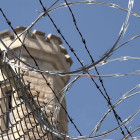
The Battle Lines Over Guns Often Drawn by Funding
|
Story produced by the Chicago Bureau. President Barack Obama delivered his second inaugural address Monday, promising to focus on climate control and pursue greater equality for gay Americans. Those issues, however, are just the beginning of the challenges he must face as he starts his second term. Fixing a broken global economy still ranks first in the minds of many Americans, along with ending our conflicts abroad. On the domestic front there’s no getting around the debate over gun control, with both sides digging in for a fight in Congress – spurred on by a mounting body count that now includes a family in New Mexico, shot dead by a 15-year-old boy.







